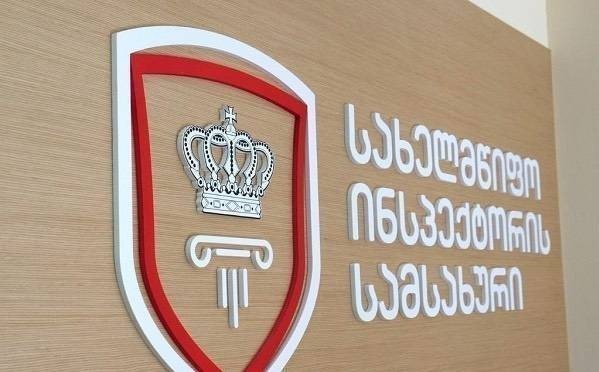საერთო ცხელი ხაზი +995 577 07 05 63


On December 25, 2021, it was reported that the Parliament of Georgia, in an expedited manner, plans to review a draft law aimed at abolishing the State Inspector's Service and replacing it with a Special Investigation Service and Personal Data Protection Service. The signatory organizations are extremely concerned about the planned attack by the Georgian Dream authorities on yet another independent body, the State Inspector's Office, breach of the independence of and trust in the institution.
We wish to remind the public that effective investigation of crimes committed by law enforcement is a significant challenge for our country. Over the years, the lack of an independent and impartial mechanism has contributed to the widespread prevalence of abuse and ill-treatment in the law enforcement system. To address these systemic shortcomings, back in 2015, civil society produced a draft law aiming to establish an independent investigative mechanism with investigative and criminal prosecution functions. The creation of the mechanism was also envisaged in the Association Agenda between the EU and Georgia for 2017-2020.
Against the background of these challenges, on July 21, 2018, the Parliament of Georgia adopted the Law on the State Inspector's Service, according to which the inspector was only allowed to conduct an investigation and the right to procedural oversight was fully retained by the Georgian Prosecutor's Office. However, the enactment of the law has been postponed four times in a row by the Parliament and finally, the Inspector's Service came into force from 1 November 2019.
Two years after its coming into force, the service's independence and impartiality have been positively assessed by both the non-governmental sector and international partners. As part of its activities, so far, the Inspector's Investigative Service has received 5,523 reports, and 8 law enforcement officers have been convicted. The service also quickly and effectively dealt with the facts of possible inhuman treatment of the third president of Georgia, the investigation into which is still underway.
In the process of establishing the State Inspector’s Service, the non-governmental sector considered that the transfer of control functions over the legality of investigations and information processing to a single agency might not have been effective. However, observations on the institute have clearly proven that no shortcomings have been identified in practice in terms of the compatibility of personal data protection and investigative functions.
At the same time, the need exists today, clearly evident and noted by civil society organizations or international actors, is to further strengthen the service. In particular, giving the agency more independence in conducting investigative actions, as well as increasing its competence and disseminating it to a wider range of offences / officials. Further institutional and functional strengthening of the Service is highlighted in the Council of Europe Committee of Ministers' decision on the Tsintsabadze Group's case in 2020, as well as in the recommendations of the UN Universal Periodic Review and in reports prepared by local organizations.
In addition, the Inspector, in the annual reports submitted to the Parliament of Georgia, constantly pointed out the legislative gaps that needed to be corrected for the effective functioning of the institution. To this end, he came with an extensive legislative proposal to the Parliament of Georgia, just hours before the changes announced by the ruling party.
The preparation of a draft law on an issue of such importance and public interest in a completely closed manner, so that neither the representatives of the service, nor civil society organizations, nor other stakeholders were involved in its drafting process, is extremely problematic and constitutes legislative arbitrariness. At the same time, the hasty initiation of the review of the draft law reveals that the aim of the government is not to have in-depth professional deliberation on the issue, but to gain influence over an independent institution. This suspicion is reinforced by the fact that on December 7 of this year, the State Inspector's Service imposed an administrative fine on the Ministry of Justice of Georgia and the Special Penitentiary Service for obtaining and disclosing personal data of the third President of Georgia, Mikheil Saakashvili. In addition, in recent times, the State Inspector's Service has been critical of cases of violations of the law by the law enforcement system. The service investigated the legality of the processing of Lekso Lashkarava's personal data, as well as responded harshly to the disclosure of materials reflecting alleged covert surveillance and tracking facts.
A draft law, secretly and expeditiously registered behind closed doors, against the background of extreme political polarization, seizure of state institutions, public distrust of law enforcement agencies and the judiciary, aiming at abolishing an independent institution and the early termination of the authority of the State Inspector is nothing more than a political retaliation against an exceptional institution that has more or less been able to gain public confidence in recent years.
In view of the above, the signatory organizations call on the authorities to stop the attacks on independent institutions and to create all conditions for the smooth operation of the State Inspector's Service.
Signatories:
The website accessibility instruction